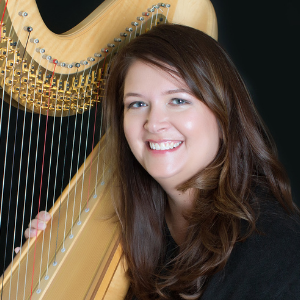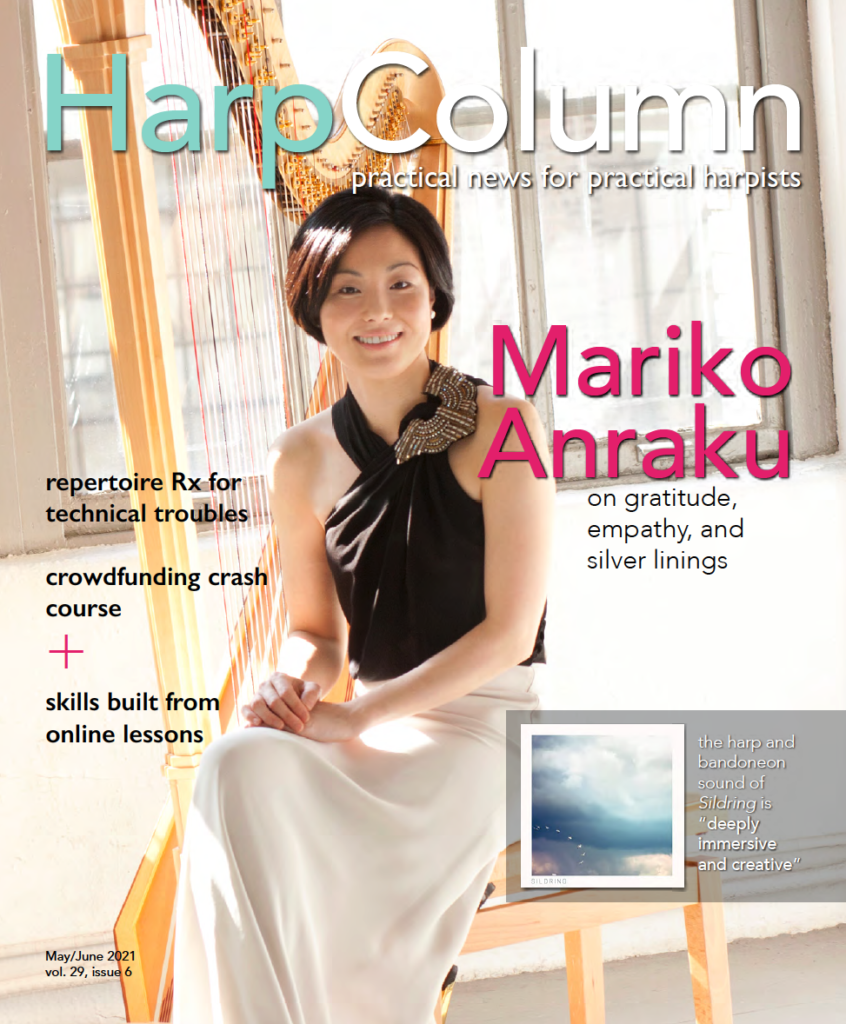While we lament a year of lost concerts, graduations, and family gatherings, I think music teachers can take some solace in knowing we inspired the next generation of performers and teachers by not giving up
Like many harpists, I am doing a lot more teaching and less performing these days. I spend much of my day in the home studio with students on the other end of a video link. What started with trial and error a year ago has reached an equilibrium through online collaboration. While it’s not ideal and probably not what we want long-term, online lessons have gotten the job done. I can say, with confidence, the learning has continued. As teachers, we know the lessons have always been about more than improving technique and encouraging discipline. With one year of the pandemic behind us, I’ve taken some time to reflect on what else my students learned, and I’ve made some observations on what they’ve gained.
Perseverance
There is a great lesson in learning to adapt. It’s a teaching moment when we tell our students, “I don’t know exactly how we are going to do this, but we are going to make it work.” When they watched us first wrestle with and then tame video technology, it signaled that we all struggle with new skills. They watched us not give up, and that kept them trying as well. When I couldn’t figure out how to coax a student into closing their thumb properly, I started to make short videos for them to watch after lessons. Perseverance means innovating in the hardest of times, and I think both teachers and students have learned this lesson in the last year.
Project management
Without regular face-to-face lessons, students have had to work more independently. They write more of their own notes in the music and copy their own fingering. They are receiving materials and instructions in new ways, navigating technical challenges and strict schedules. They need to configure their devices and cameras, sometimes testing angles and distances, before the lesson starts. Project management is about delivering something on time and at an expected quality level, while dealing with constraints and removing barriers. Particularly for my teenage students, primarily in charge of their own time and having to manage their own logistics, they have had a crash course in project management.
Optimism and the power of positivity
My family describes me as hopelessly optimistic. I’m not sure I agree it’s hopeless, but I do trend toward the positive. No one goes into the competitive field of music without more than a bit of optimism. The pandemic has been an opportunity for my studio to focus students on what they can do rather than what they can’t. We don’t reflect on what the pandemic has taken from us; we celebrate the new doors it has opened. Grandparents 3,000 miles away (in some cases, half a world away), who may never have seen a student play, are now able to be in the audience at recitals. Students are collaborating with one another from home, blending their performances to make music (and videos) together from their living rooms. My son, who plays piano, had a driveway concert and invited a neighborhood who was starving for live music and human connection. Concentrating on the possible in a time of social restriction is a lesson I expect these students won’t soon forget. Butchering the old adage, we are making lots of lemonade right now, and the lemonade is pretty good.
Mental health
All teachers share a concern for the effects of student isolation from friends and classmates. We’ve felt this as adults and it’s likely much harder on our young students. Playing music and listening to music has proven health benefits, and it taps into something uniquely human. As the late Oliver Sacks, intimately aware of the positive effects of music on the mind, wrote in Musicophilia, “Our auditory systems, our nervous systems, are indeed exquisitely tuned for music.” I have noticed that my students who struggle the least with isolation and depression are more engaged in playing. Admittedly, cause and effect could be reversed, but I have seen enough to think that continuing music education through the pandemic has had a positive effect on student mental health and has helped them cope. My hope is that they recognize this therapeutic power of music education as they get older, regardless of whether they remain committed to lessons.
Whether they continue their music studies or not, I think the lessons students have learned during the pandemic will be lasting. While we lament a year of lost concerts, graduations, and family gatherings, I think music teachers can take some solace in knowing we inspired the next generation of performers and teachers by not giving up. When my students inevitably return in person, will I have to write notes and corrections on their music once again? I certainly hope so. I look forward to it. Until then, I will celebrate their investment in all the music they have learned, their openness to change, and their steadfast resilience. •






